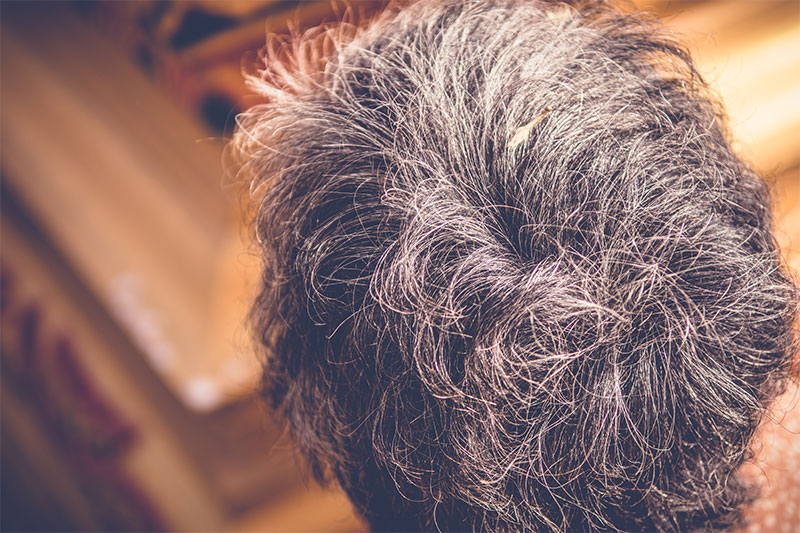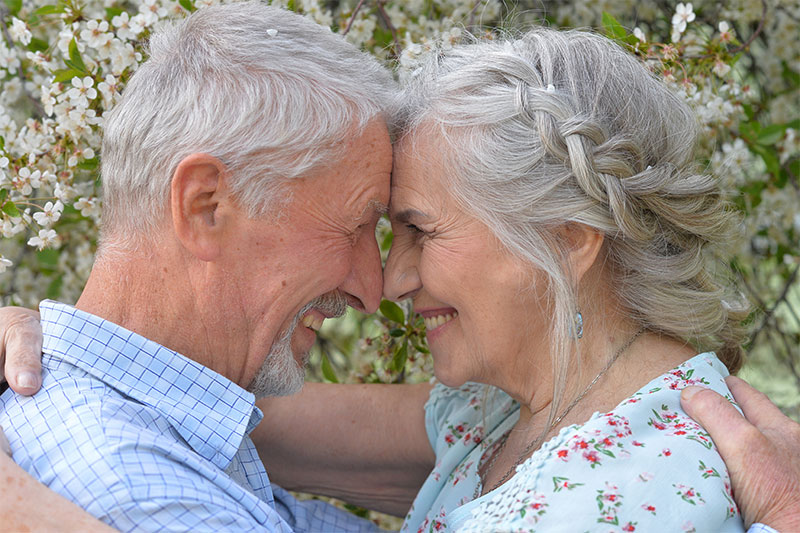For most people, the appearance of gray or white hair is the beginning of all their woes. Their main concern is aging. There are some young people below age twenty who have gray hair, and this is a genetic health condition with no known remedy.

While many people become alarmed at the sight of gray hair, others take it casually as a sign of wisdom and pay scant attention to it. Some people think gray hair results because of stress and undue worry, but this has no medical backing. The only comforting thought is that no single person in this world is spared from gray hair unless they are bald. The main factors that cause graying of hair are aging, environment, genetics, and health. Aging, of course, remains the single most common factor that leads to graying of hair.
What Causes Hair to Turn Gray?
Let’s get to the root of the all important question. Grey hair begins to appear when the body stops producing melanin. It is because of melanin that hairs remain black. Our hair grows out of a hair shaft that is filled with melanin, and these cells are called melanocytes. These melanin filled cells cause melanin to spread to adjoining cells known as Keratinocytes, which produce the key components called Keratin for hair growth and its ability to remain black.
When these keratinocytes perish, they retain melanin which is the pigment visible on our skin and hair follicles. When there is an excess of these dead keratinocytes in the hair shafts, our hair appears black, and as the keratinocytes begin to decrease, so does the melanin amount and our hair begins to turn white slowly. Hair that is entirely devoid of this pigment appears totally white. Lack of moisture in hair occurs, and hair becomes lighter in the shade, its texture turning more brittle and dry. It’s one reason why white hair appears curlier.
How does the Hair Slowly Turn Gray?

In the beginning, many of us would have noticed that gray hairs occur randomly, one here and there, and we don’t pay too much attention to it as it is not clearly visible. One of the places where the first gray hairs appear is usually the top of your heads or on the temples. Hair actually does not turn gray as many people would think; it begins to grow like that.
Everyday many hairs from our head fall down, and new hairs grow to replace them. At any given time, 90% of our hairs are growing while some take rest. The time taken for a hair to grow completely is two to four years, after which it remains in its resting state for two to four months before it finally falls off and gets replaced by a new strand. Typically, we lose about fifty to hundred hairs a day, which is considered normal. Darker hairs that are much older fall off and replace by newer gray hairs that are devoid of melanin cells. As we age as melanin production decreases, so do the number of dark hairs. The melanocytes will be present only they become inactive leading to the formation of gray hairs.
Grey of hair occurs as soon as you turn thirty, and scientists feel gender and genetics play an important role in determining grey hair formation. There are families where graying of hair is seen in young people in their teens, where as there are families where even at the ages of fifty people still have dark-colored hair. All this is due to genetic factors.
What are the Reasons for Graying of Hair?
Illnesses, smoking, lifestyle, environment are key factors that are responsible of graying of hair. People who smoke have developed gray hair sooner than non-smokers. People who suffer from various health conditions and illnesses are also prone to early graying of hair. Vitamin B 12 deficiency has been found to decrease melanin production, leading to gray hair. Hormones are also reasons for hair graying early. Intake of certain drugs and medications can cause early graying of hair.
There is no known medication to help stop graying of hair.


